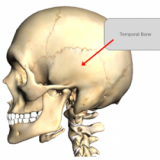The significant role of expert evidence.
When presenting a claim at trial dealing with future loss it is vital to have appropriate expert evidence to justify sought damages. Failure to do so can result in a dismissal of the sought damages even if they are unopposed. Reasons for judgement released May 6, 2011 highlight the importance of medico-legal evidence in personal injury trials.
In Moore v. Briggs the plaintiff suffered a fractured skull (fractured left temporal bone) and a brain injury in a 2003 assault. The plaintiff sued those he claimed were responsible for the assault. One of the defendant’s did not respond to the lawsuit and the plaintiff obtained default judgement against him. The plaintiff asked the Court to award substantial damages including an award for diminished earning capacity. Despite the plaintiff’s assessment of damages being unopposed the plaintiff was only awarded a fraction of his claimed damages and he received nothing for future loss.
In assessing non-pecuniary damages at $40,000 and dismissing the claim for diminished earning capacity Madam Justice Dillon provided the following reasons:
[11] As a result of the assault, the plaintiff continues to have some problem with memory. This has improved over time such that it does not interfere with work or enjoyment of life, but still lingers. He also has difficulty with attention span and focus. He continues to have almost daily headaches. These often interrupt his sleep. He noticed that eye near the indentation in his temple was “lazy”, a couple of times a week at first and now hardly noticeable.
[12] For about four years after the assault, the plaintiff had problems with balance such that he could not walk a straight line and was dizzy when he looked down. He wanted to obtain employment as a greenhand on the log booms but did not consider that he could do the job. This would have increased his hourly pay to $24. Few details were provided about this job prospect. There was no medical evidence to support this inability and the plaintiff testified that any problems with balance had now resolved…
[17] Here, there is evidence of a small depressed comminuted fracture of the left temporal bone that resulted in some memory and motor impairment. From the testimony of the plaintiff, it appears that the motor impairment has resolved over time. There continue to be memory problems, the exact nature of which has not been assessed on a current basis. There are also some continuing headaches that are attributed to the fracture in 2003. The plaintiff lost about two months work and has successfully resumed his career and achieved advancement. His social life appears stable and normal. Any present loss of enjoyment of activities is because of lack of interest as opposed to ability…
[22] After consideration of these authorities and in consideration of the plaintiff’s description of his injury, and given the lack of medical information, non-pecuniary damages are assessed at $40,000…
[24] The plaintiff also claims loss of future earning capacity because of inability to obtain employment on the log booms. He calculated this amount based upon expectations of work life to age 65 at the remuneration rate that he said he would have received as a greenhand. This is contrary to the capital asset approach which has been adopted in this Court (Parypa v. Wickware, 1999 BCCA 88 at para. 63). However, the evidence on this aspect of the claim is scant and unsupported by any medical or actuarial evidence. Further, the plaintiff had successfully advanced in his work at present and said that this is his employment of choice. Further, there was no evidence that his employment aggravated his symptoms. The plaintiff must establish that there is a real and substantial possibility that his earning capacity has been impaired to some degree as a result of the injuries sustained in the assault (Romanchych v. Vallianatos, 2010 BCCA 20 at para. 10). In my view, there is little likelihood of any substantial possibility of an actual income loss in the circumstances here. There is nothing to suggest that the plaintiff will be unable to perform the tasks required in his work of choice. Nothing is awarded under this head of damage.





